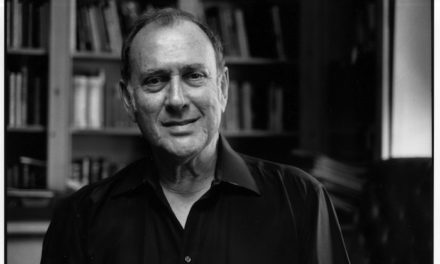Calling New York City a character in a film is a well-worn, mocked cliché. I promise now to not indulge in it for the whole of this review. Or any review I ever write, unless it’s my Annie Hall vs. Manhattan debate with self” article. (Which you’ll never see unless Woody Allen dies or some editor foolishly gives me a very free reign.)
New York City provides a phenomenal background for The Night Before and Brooklyn. In both films, the city and those who make it up represent a transition into a new world. Functionally, New York City represents adulthood, a brand new life that the characters have carved out for themselves.
The Night Before
The Night Before is the film that we have too many films of, yet could still use more of.
It’s the story of three friends, Ethan (Joseph Gordon-Levitt), Isaac (Seth Rogen) and Chris (Anthony Mackie), on the last year of their annual Christmas tradition in which they go out on the town, get drunk and high and generally bro the hell out.
The Night Before treads lightly on ground that has already been well-worn. General farce and dude shenanigan jokes abound, but they don’t land for most of the film. Cameos from Michael Shannon as a bizarre pot dealer and Ilana Glazer as a Christmas villain-idolizing thief provide immediate laughs, but the rest of the film exists on a weird rhythm.
It seems as though the best jokes work on a slow build basis, with threads built throughout until it finally comes together in a few admittedly really great jokes. But much of it is slapstick physical humor or jokes that simply don’t end up landing properly at the time, even if they do land properly later. And fortunately, the three performers at the film’s core are more than committed and ready to sell the material, even if it doesn’t all resonate well.
As a bro-comedy, it doesn’t carve out any new ground and its weird insistence on slow build jokes tends to slow down the rapid pacing needed for the comedy that one would expect it to be.
And that’s where you need to hold on with director Jonathan Levine (50/50), because this hit is not exactly a bro comedy.
It’s the story of three friends, each on the precipice of a major life change. Isaac is about to have a child and he’s not sure that he’s ready or able. Chris is a football player having the best season of his life thanks to steroids. Yet, he’s still not getting any respect from his team. And ever since the death of his parents, Ethan has been stuck, unable to get out of an arrested development rut that cost him the love of his life and a real job.
The Night Before’s secret weapon is the simple fact that it’s a Christmas film. That Christmas magic lets the film indulge in the natural reflections that come with the season. Despite the heightened reality of the film, the trio’s problems feel very real. There’s something eminently relatable in their struggles and the deft acting of each allows for them to feel like very real friends with a history outside of the film itself.
The Night Before is a Christmas film that understands why we love Christmas films. They’re a way for us to reflect on who we are and the transitions that we make from year to year. It’s a fundamentally strong character dramedy wrapped in a mediocre bro comedy.
It’s a film full of little surprises, but they’re not quite where they should be.
GRADE: B-
Brooklyn
Brooklyn is a phenomenal example of how to make a film with low stakes. Not every film has to fight for the world or the moral right or absolutely revolutionize the life of its characters. Sometimes, it’s more than enough to make us care about a character and let them go through the natural changes of life in a beautiful and heartwrenchingly well-made way that makes it hard to notice how quiet this little film is.
Brooklyn is an immigrant tale. Eilis Lacey (Saoirse Ronan) is a young Irish girl given the chance to come to America for opportunities that she doesn’t have at home. In the city of Brooklyn, Eilis finds a job, a routine and even love, with an Italian boy named Tony (Emory Cohen). But tragedy leaves her torn between Ireland and New York, and a decision must be made.
So, it’s clearly a small and simple story. But I’ll be damned if Brooklyn isn’t absolutely able to get to you through that and be an incredibly compelling story in that little framework.
Nick Hornby continues to prove himself as one of Hollywood’s most surprisingly adept screenwriters, especially in crafting tales for strong female characters, and director John Crowley with cinematographer Yves Belanger bring his script to life in suitably lush coloration and workman precision. Brooklyn is a gorgeously put-together film, and it’s that craft that allows it to have such resonance.
The performance of lead actress Saoirse Ronan is just as noteworthy. Eilis Lacey is the kind of character who has a simple and quiet dignity that leaps off the page. But Ronan turns in the kind of performance that announces her as one of the next great actresses. She says so much with a reaction shot or a meaningful look, and the audience falling in love with her is the quickest way to falling in love with this film. Ronan exudes strength and intelligence in Brooklyn. As of this moment, I believe she is the strongest candidate for the Academy Award for Best Actress this year, something that would announce the career of someone who’s been up and coming for so long.
But descriptions of Brooklyn don’t go anywhere near the simple artisanal craft of this movie. It’s the kind of old-fashioned and lovely romantic entertainment that you can recommend to anyone and everyone and you know that they’ll love it. It’s sweet and heartwarming and funny, the kind of movie that they don’t make anymore, but they really should.
GRADE: A
Opinion Editor | Brandon Wagner is a College Senior from God Only Knows Where, America studying Film and Media Studies with a minor in Religion. This is his first year for the Wheel, in a likely misguided experiment to be a film critic. When he's not writing on the biggest blockbusters or the films of Spike Jonze or Andrei Tarkovsky or Zack Snyder, he's writing on comedic television, the future of gaming as an art, or the relationship between audience and cinematic experience. In other words, Brandon Wagner has basically nothing else going on but this.





